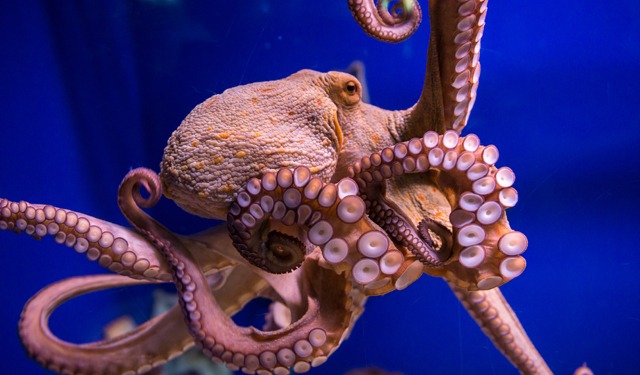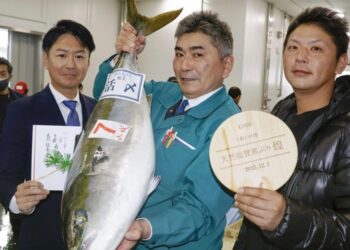Yes or no to octopus farming? – Despite massive public opposition, the world’s first commercial octopus farm, built in the Canary Islands by Nueva Pescanova, seems to be going ahead.
The project, which aims to raise one million octopuses per year for food, is awaiting the regulatory approval needed to start work. The production technology, launched in 2018, has overcome the challenges associated with intensive octopus farming, previously considered almost impossible due to the larvae’s feeding requirements and the controlled environment required.
Nueva Pescanova recently reported that it has reached the fifth generation of octopuses born in the facilities, which have managed to reproduce outside their natural habitat.
However, the project faced opposition from environmentalists and part of the scientific community. Some 75 NGOs, experts and public figures sent an open letter to the Canary Islands government, demanding that the project be abandoned to avoid animal cruelty, environmental damage and negative impacts on tourism.
The ethical issue raises controversy, as octopuses are solitary and intelligent animals. Organisations such as Compassion in World Farming have pointed out that octopuses cannot be raised to high welfare standards, arguing that intensive farming could lead to aggression or cannibalism.
The project, supported by nine research centres in Spain, Portugal and Mexico, is seen as a scientific breakthrough to address the growing global demand for octopus. However, the debate over the slaughter of octopuses and the living conditions in the breeding centres raise ethical concerns.
Despite the resistance, Nueva Pescanova defends its project, emphasising efforts to optimise production in terms of genetics, nutrition, health and animal welfare. The project aims to develop sustainable aquaculture, but opponents call for a ban on commercial octopus farming.
The growing global demand for octopus, estimated at 350,000 tonnes per year, makes the debate on intensive farming a relevant issue. Nueva Pescanova claims the technology meets quality and animal welfare standards, but the outcome of the project remains uncertain, with environmentalists lobbying lawmakers for a ban.
Yes or no to octopus farming?







